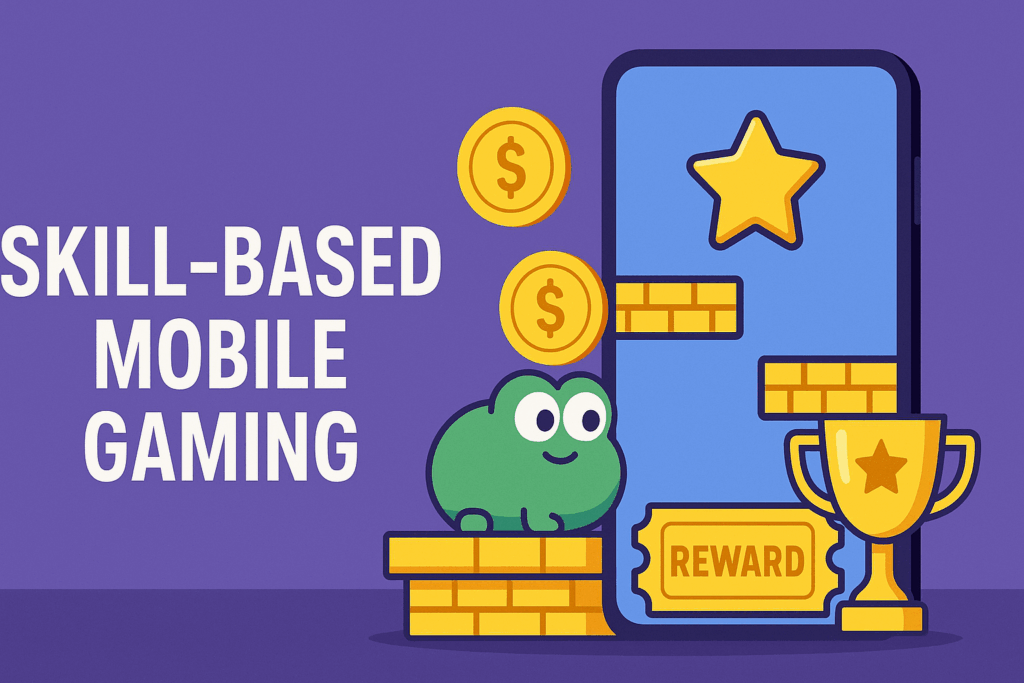Mobile games have transformed from simple titles into dynamic ecosystems where strategy, competition, and tangible rewards coexist. What began as casual play has evolved into a sophisticated digital landscape that merges entertainment with personal achievement. Today, the boundaries separating mobile gaming and gambling are becoming less distinct, not because chance dominates the experience, but because reward-driven design now emphasizes skill, precision, and consistency.
This change also highlights the growing need for informed engagement. Players increasingly look for credible sources that help them navigate this expanding world of real-reward games. For instance, when exploring interactive platforms, a list of NZ games by Pragmatic Play provider compiled on trustworthy online review sites can offer players reliable and accessible insights into design quality, fairness, and usability. These independent resources reflect a wider movement toward transparency and informed participation, ensuring that competition remains enjoyable and grounded in trust.

Contents
A New Era of Mobile Play
Skill-based gaming has carved out a unique space in the mobile world. Unlike pure gambling, where outcomes hinge on luck, these games reward practice and strategic decision-making. From trivia challenges to puzzle games and eSports-style arenas, players compete using reflexes, memory, and timing rather than random chance.
The appeal lies in empowerment. Players feel that their decisions directly influence outcomes, turning games into meaningful experiences rather than passive distractions. As mobile devices become more powerful and socially connected, this sense of agency grows stronger, giving rise to an industry that thrives on fair competition and digital credibility.
Core Features Defining Skill-Based Mobile Games
To understand how mobile games are blending with reward-based systems, it helps to identify their defining characteristics. These features separate skill-based entertainment from purely chance-driven formats:
- Predictable frameworks: The core mechanics remain consistent, allowing players to develop mastery through experience.
- Clear scoring systems: Points, levels, or leaderboards provide measurable progress and a sense of accomplishment.
- Balanced matchmaking: Players are grouped by similar skill levels, maintaining fairness and engagement.
- Reward integration: Virtual prizes or monetary incentives enhance motivation without compromising the role of skill.
Together, these attributes create an ecosystem where strategy and repetition replace unpredictability, reshaping how users perceive digital play.
The Psychology of Competitive Play
Human motivation thrives on challenge and feedback. Skill-based mobile games leverage both to create lasting engagement. Players enter short, focused sessions that encourage improvement and reward persistence. Each success or failure provides immediate feedback, strengthening the learning loop and stimulating continued participation.
This structure mirrors athletic training or eSports tournaments — environments where progress depends on practice and cognitive sharpness. Developers have refined this model by introducing adaptive algorithms that adjust difficulty levels, ensuring a balance between accessibility and mastery.
Why users gravitate toward reward-based play:
- Sense of progress: Visual indicators of growth, like rankings or badges, reinforce intrinsic motivation.
- Social validation: Competing against friends or online communities fosters a healthy competitive spirit.
- Real-world connection: Tangible rewards, from token prizes to brand sponsorships, link virtual effort with real recognition.
- Personal control: Success depends more on human performance than on external randomness.
By combining these elements, mobile gaming platforms offer a more emotionally satisfying experience that aligns with modern expectations for digital entertainment.
Industry Practices That Shape Fairness
Behind every successful skill-based mobile game lies an infrastructure designed for fairness and accessibility. Developers focus on transparency, balance, and responsible engagement to distinguish their products from unregulated or exploitative alternatives.
| Design Element | Purpose | Impact on Player Trust |
|---|---|---|
| Consistent Scoring Rules | Standardize competition | Reinforces reliability and predictability |
| Independent Testing | Ensures fairness and technical stability | Builds credibility for developers |
| Secure Payment Systems | Protect user funds and transactions | Enhances confidence in reward mechanisms |
| Responsible Play Features | Allow time or spending limits | Encourages sustainable engagement |
Such measures underline a crucial evolution: players are no longer passive consumers but informed participants who value transparency as much as entertainment.
Looking Ahead: Redefining Digital Competition
Skill-based mobile gaming is not just an entertainment category; it is an evolution in how users interact with technology. By combining competition, cognitive engagement, and real-world incentives, it creates an environment that celebrates both fun and fairness.
As developers continue refining design principles and integrating transparency tools, the line between play and reward will become even more harmonious. What matters most is not the prize itself but the experience of mastery — the human satisfaction of earning success through strategy, effort, and skill.
In this convergence of innovation and integrity, mobile gaming is not replacing chance; it is redefining what meaningful play truly means in the digital age.



